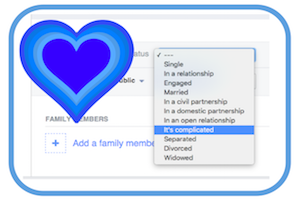 Last month, the Daily Mail website ran a story under the headline: Fury as Tesco offers large bottles of Budweiser for just 14p each on its website – only to cancel orders because the price was a mistake. The offer appeared as a Valentine’s Day special, for beer lovers everywhere. In another example, last Autumn, shoppers on Sears.com noticed that expensive toys (such as kids’ accessories and play sets that cost hundreds of dollars) were available for only $11.95. Nancy Kim on ContractsProf Blog explains many of the contract law consequences of this mistake.
Last month, the Daily Mail website ran a story under the headline: Fury as Tesco offers large bottles of Budweiser for just 14p each on its website – only to cancel orders because the price was a mistake. The offer appeared as a Valentine’s Day special, for beer lovers everywhere. In another example, last Autumn, shoppers on Sears.com noticed that expensive toys (such as kids’ accessories and play sets that cost hundreds of dollars) were available for only $11.95. Nancy Kim on ContractsProf Blog explains many of the contract law consequences of this mistake.
This kind of mistake happens a lot. Sometimes, it’s human error; sometimes, it’s a misfiring algorithm – thus proving the old adage: to err is human, but to really foul things up requires a computer (though, some of these errors could be maliciously caused by hacking). And these errors seem particularly headline-grabbing when they involve really cheap tvs or flights. I’ve looked at the legal issues in these situations several times on this blog: see here, here, here, here, here, here and here. Those posts illustrate that there are at least four questions:
1. Is there a contract? In particular, has the process of placing the order on the website amounted to a correspondence of offer and acceptance, such that there is a contract between the parties? If there is any legal analysis at all in news stories on these kinds of cases, this is as far as it goes. But there is far more to it than that.
2. If so, is the contract affected by the website’s mistake? In particular, is mistake sufficiently fundamental that the contract is void or voidable? This is the essence of Prof Kim’s analysis of the Sears mistake.
3. If not, what are its terms? In particular, does the website have a term that allows allows it to cancel the contracts in these kinds of circumstances? For example, the Amazon website is particularly clear on this issue. But even if there is such a term, it would have to comply with the European Communities (Unfair Terms in Consumer Contracts) Regulations, 1995 (S.I. No. 27/1995).
4. Even if a customer gets these questions answered in his or her favour, the available remedies may not be the straightforward good or service at the cheap price.
Since I wrote the posts examining those issues, a fifth issue has been added by the European Union (Consumer Information, Cancellation and Other Rights) Regulations 2013 (S.I. No. 484/2013), transposing Directive 2011/83/EU of the European Parliament and of the Council of 25 October 2011 on consumer rights, with effect from 13 June 2014. This provides for a cooling-off period for consumers who enter into online contracts. So, if the price differential is in the website’s favour rather than the consumer’s, the consumer can exercise the right to cancel within the cooling off period.
If the website does not comply with your cancellation, then you have three routes of complaint. First, in the case of an Irish site, you can complain to the Competition and Consumer Protection Commission (CCPC). Second, in the case of a site elsewhere in the EU, you can contact the European Consumer Centre Ireland (ECC Ireland), or you can seek to take advantage of the European Union (Online Dispute Resolution for Consumer Disputes) Regulations 2015 (S.I. No. 500/2015), which give effect in Ireland to a new online dispute resolution platform developed by the EU Commission. Third, in the case of site based outside the EU, you can file a complaint with Econsumer.gov.
The moral of the story, for the Daily Mail‘s beer lovers, is that there is more than one way to end up broken-hearted on St Valentine’s Day. And the moral of the story, for the rest of us, is that where there is an error in an online price, the matter is not straightforwardly in the consumer’s favour; instead, like the Facebook relationship status, it’s complicated.
One Reply to “Valentine’s Mistakes”